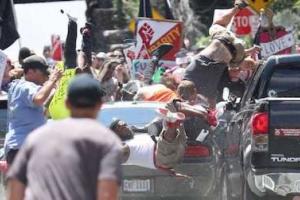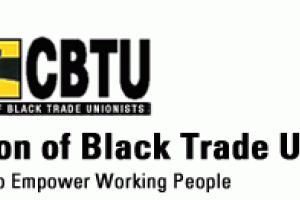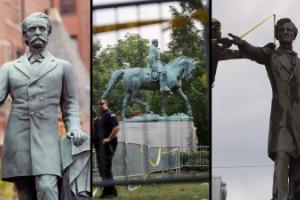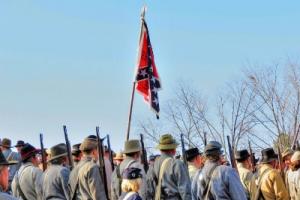America Was Never White
History News Network
 Make no mistake about it: What we observed was an act of terror. This brutality was designed to intimidate people of color, such as myself, as well as to intimidate the many courageous people who were in Charlottesville opposing white supremacy in full force. The goal was to place a high cost on protesting white supremacy and to frighten people away from standing up for their rights.
Make no mistake about it: What we observed was an act of terror. This brutality was designed to intimidate people of color, such as myself, as well as to intimidate the many courageous people who were in Charlottesville opposing white supremacy in full force. The goal was to place a high cost on protesting white supremacy and to frighten people away from standing up for their rights.
 Trump has been apt to condemn and mock anyone he finds offensive. He has no problem commenting on women bleeding, but has no comment when someone is bleeding from being hit by a car. His lack of commentary is indicative of his relationship to the white racists. While I do not believe all those who support this president are racist, I do believe all racists support this president. His lack of actions and words have reinforced this fact.
Trump has been apt to condemn and mock anyone he finds offensive. He has no problem commenting on women bleeding, but has no comment when someone is bleeding from being hit by a car. His lack of commentary is indicative of his relationship to the white racists. While I do not believe all those who support this president are racist, I do believe all racists support this president. His lack of actions and words have reinforced this fact.
 Monuments to Confederate soldiers and generals hold prominent positions in dozens of cities across the southern United States. Over the weekend, one of them - a statue of Confederate leader Robert E. Lee in Charlottesville, Virginia - became the site of a violent clash by white supremacists against anti-racist counter-protesters. There are movements in states across the country to remove them. Help identify these monuments to racism and slavery. List of these monuments.
Monuments to Confederate soldiers and generals hold prominent positions in dozens of cities across the southern United States. Over the weekend, one of them - a statue of Confederate leader Robert E. Lee in Charlottesville, Virginia - became the site of a violent clash by white supremacists against anti-racist counter-protesters. There are movements in states across the country to remove them. Help identify these monuments to racism and slavery. List of these monuments.
 The University of Virginia has long been a bastion of white supremacy and its validating scholarship. The book’s author identifies how such antidemocratic sentiment has long gestated in academia generally, encapsulated in neoclassical economics and its validation of alleged rational economic behaviors -- theories that originated in opposition to the New Deal and the Civil Rights movement and predominate in today's conservative and far-right movements today.
The University of Virginia has long been a bastion of white supremacy and its validating scholarship. The book’s author identifies how such antidemocratic sentiment has long gestated in academia generally, encapsulated in neoclassical economics and its validation of alleged rational economic behaviors -- theories that originated in opposition to the New Deal and the Civil Rights movement and predominate in today's conservative and far-right movements today.
Spread the word